
The cost to install a wall oven depends on several factors, including the type and size of the oven. Get our full wall oven installation cost breakdown.
Help your fridge keep its cool with these main


Your refrigerator is an expensive investment you don't want to leave to collect dust in a random corner of your kitchen. By keeping it squeaky clean, meticulously organized, and stocked like a pro, you're ensuring it stays in tip-top shape for years to come. Here are tips anyone can follow to up their refrigerator maintenance game.
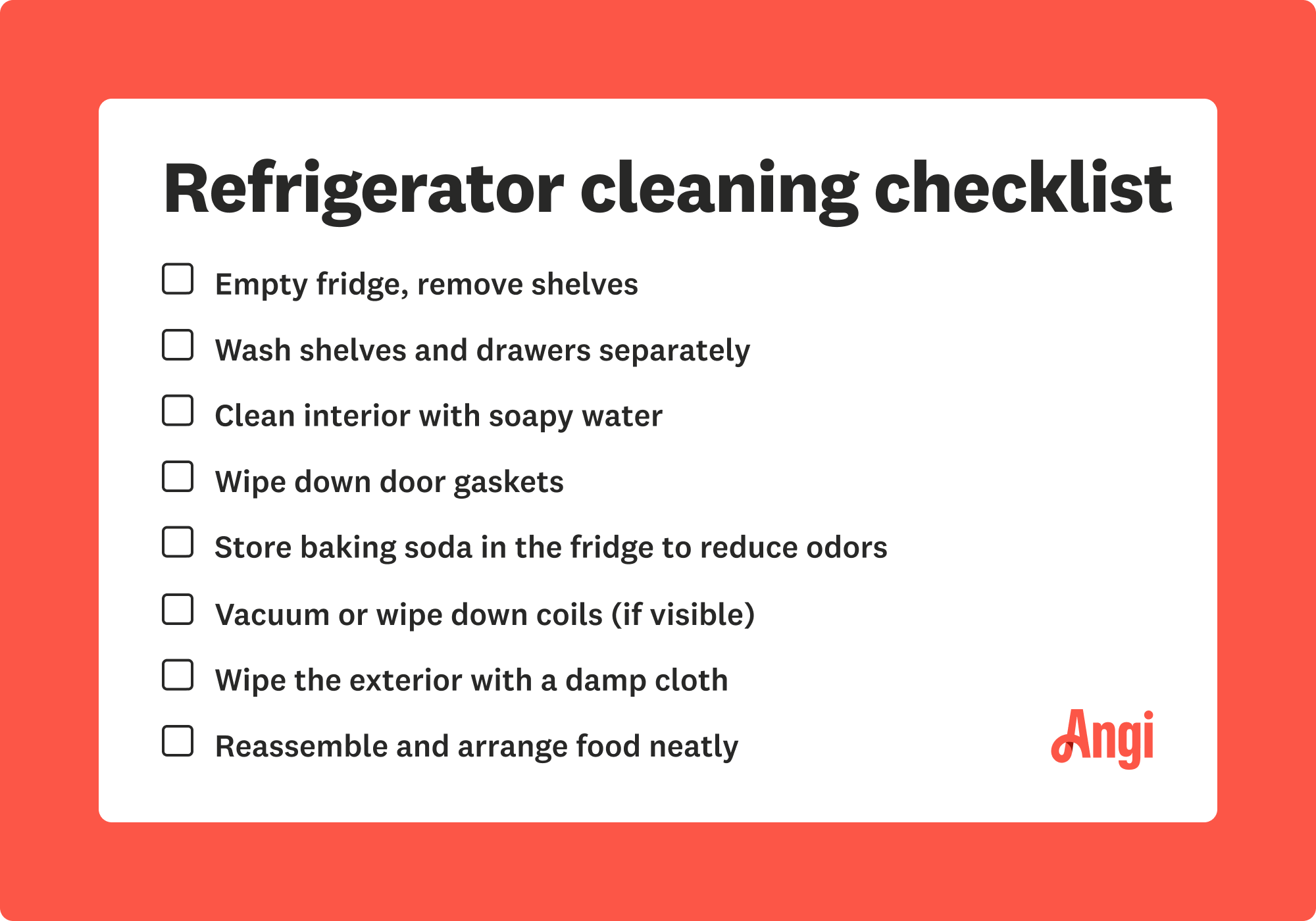
Cleaning your refrigerator regularly (shoot for once a week) helps keep you healthy and your fridge operate more efficiently, saving you from costly refrigerator repair costs. Old food breeds bacteria, affecting everything stored in the refrigerator. Spilled items also cause food build-up near vents, forcing your fridge to work harder to stay cold.
To clean your refrigerator properly, wipe down all surfaces with spray or a warm cloth. Throw away any expired items, and take the time to clean vents and filters, if necessary. Specifically, make sure to clean your water filter regularly, if you have one. Learning how to clean your refrigerator water dispenser is easy, requiring a simple cleaning solution and a little elbow grease.
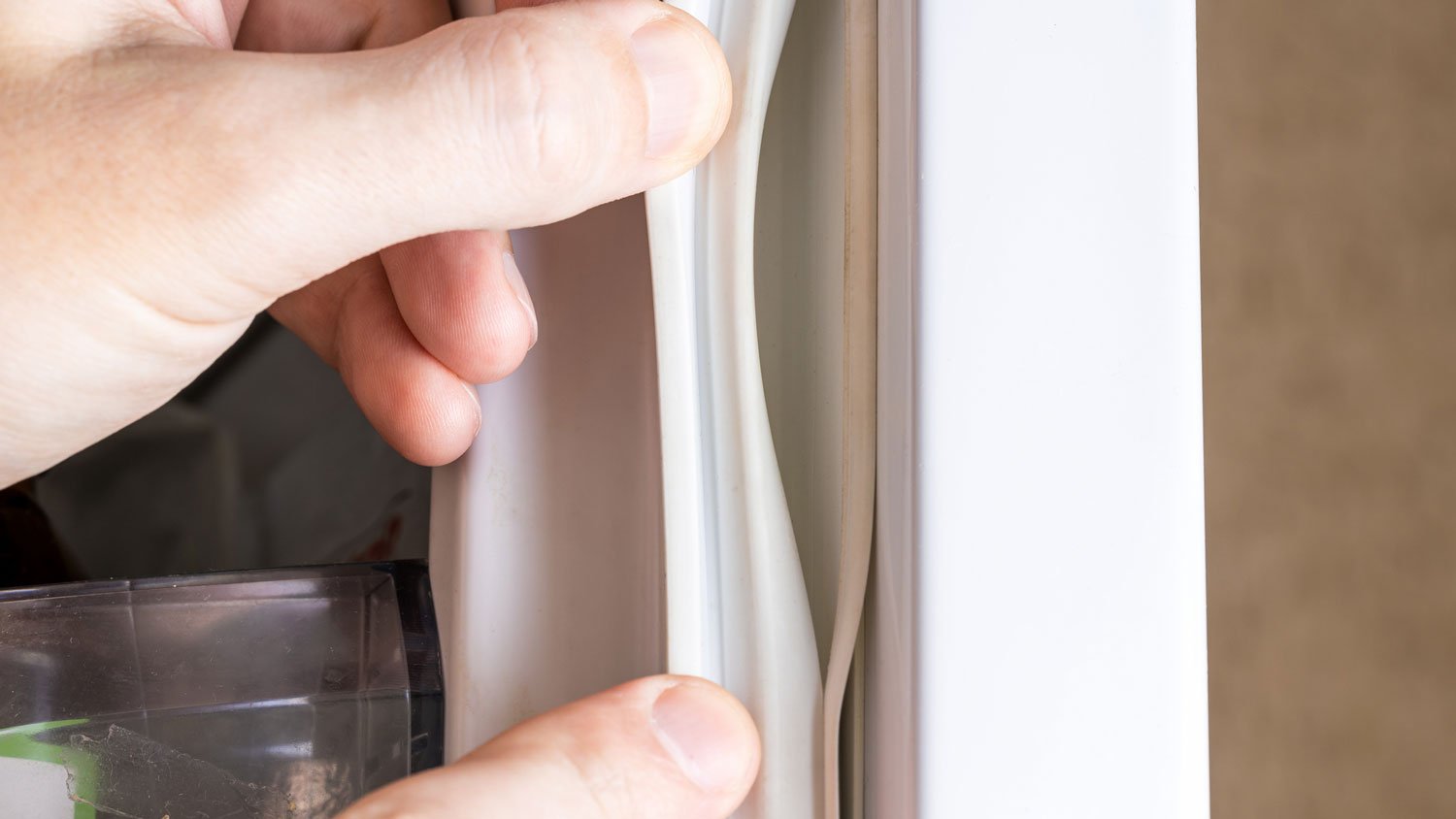
Over time, the seals around your fridge and freezer doors wear down. If ignored, your fridge will work twice as hard to stay cold, creating more wear and tear on every part of it.
Replacing your seals isn’t too difficult, especially when compared to the cost of the new fridge you’ll need to buy a few years earlier than expected if you don’t address the issue. Seal gaskets average between $30 to $75, depending on your specific model. If all else fails, look for a qualified refrigerator repair technician near you who can help you fix any issues.
Old, sloping floors can make it difficult for refrigerator doors to close completely. This can lead to expired food and an overworked fridge. If you have the space, move your fridge to a level surface or adjust the feet on your fridge (if you have them) so that the unlevel side(s) even out.
If you have a water hookup on your fridge, you may not have the option to decide where your fridge goes. But if you can move it, make sure your refrigerator is away from the stove or any heat source. Not only can food splatter get on your fridge if it’s near a stove, but any heat forces your fridge to work harder to stay cold.
The coils on the back of your fridge act as a heat radiator, allowing heat to release from the fridge, keeping it cold on the inside. If dust, dirt, pet hair, and food build on these coils, your fridge can’t function properly, and the contents won’t stay as cold.
Clean these coils at least a few times a year. Using a vacuum cleaner to gently suck up any debris works well, or simply use a damp cloth. You may have to move your fridge to access these coils, but it gives you the chance to clean up any other spilled contents behind your fridge.
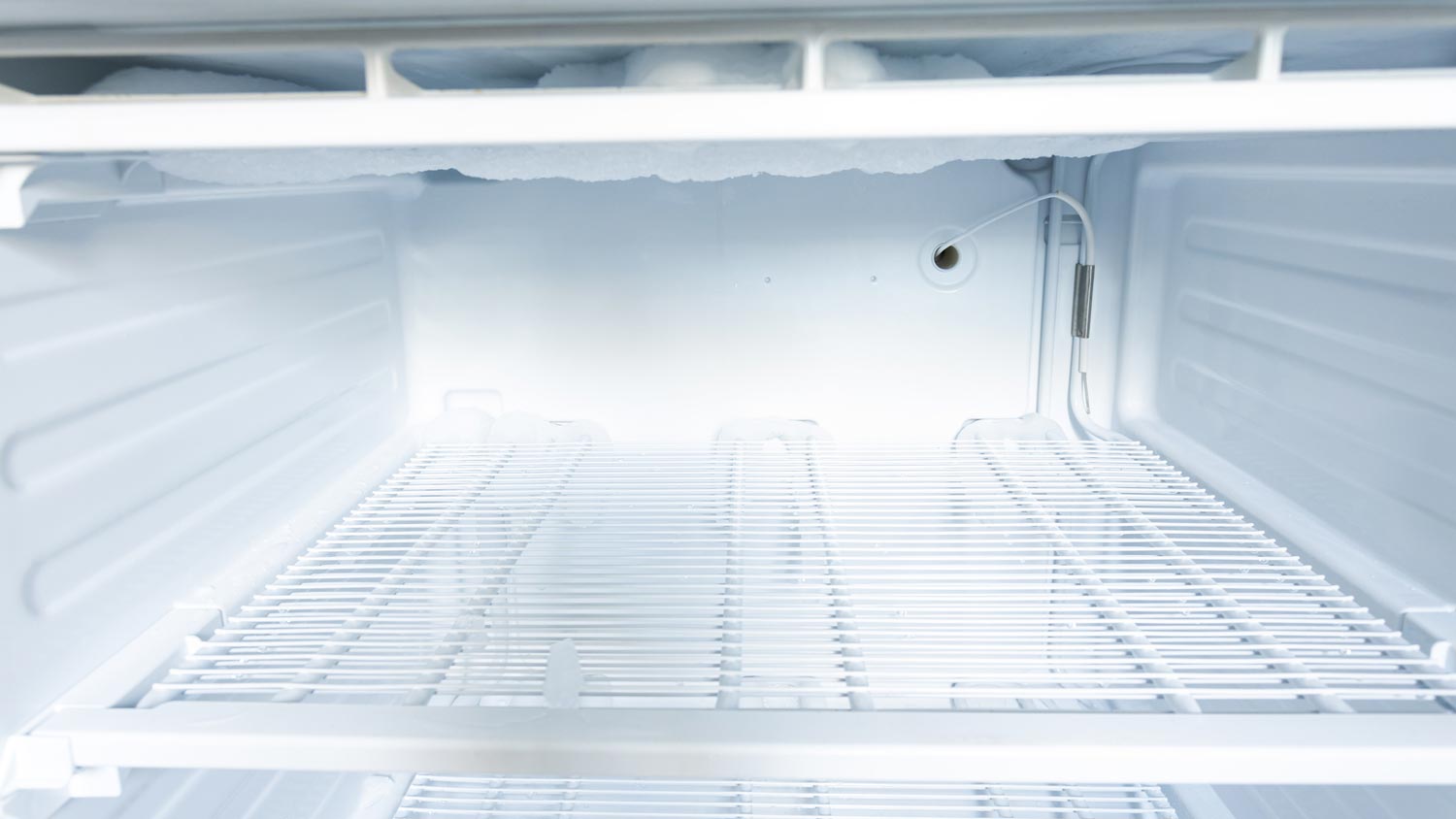
If you’ve ever opened your freezer and found many items covered in frost, this is a clear sign that ice has built up too much. Thankfully, it’s an easy fix. Take everything out and defrost the fridge every once in a while. This saves your meat from freezer burn and helps your freezer run more efficiently.
This isn’t necessarily an efficiency tip, but emptying your ice container if you have one helps you keep your drinks tasting fresh. While it may seem counterintuitive to clean out an ice maker that’s just filled with frozen water, harder water still leaves a residue which builds up over time. When your ice is getting low, occasionally empty and clean out the ice maker.
When storing food in your fridge, keep it in air-tight containers with lids. If you can’t manage this, at least cover the container with plastic wrap. Storing food this way prevents moisture from getting into the fridge, which can affect the electrical components.
Additionally, before putting hot food in the fridge, let it cool down ahead of time. Don’t leave it out for hours, but wait for it to stop steaming. If it’s hot going in, this raises the refrigerator temperature which causes the refrigerator to work harder.
The Food and Drug Administration has guidelines for how cold your refrigerator and freezer should be. Your refrigerator should be at or below 40°, while your freezer should always be at least 0°. This ensures proper food safety but also helps ensure efficiency. If your refrigerator and freezer temperatures are excessively low, they work harder for no reason, wasting energy.
Check the temperature of both your refrigerator and freezer occasionally. Most newer refrigerator models have built-in thermometers that tell what the temperature is, but for older options, get a cheap refrigerator thermometer.

Packing your fridge full of food, with items all stored on top of each other, is a surefire way to ensure nothing stays cold. When your fridge is overly full, you run the risk of blocking vents and having the fridge overwork itself. Keeping an evenly stocked fridge helps it run as smoothly as possible.
As small as it may seem, it’s important to change your fridge’s light bulb if it burns out. Searching around for food in the dark or scrambling to turn your phone’s flashlight on takes time, and you’re most likely standing there with the door open. This drains the cold from the refrigerator and forces your fridge to catch up once you finally shut the door.
Spend a few dollars on a new light bulb and take a few minutes to install it. You’ll save yourself the annoyance of finding food in the dark and a few bucks.
Like many appliances in your home, it doesn’t hurt to get your refrigerator serviced from time to time, especially if you’re not comfortable with certain DIY maintenance. If you find that your refrigerator isn’t keeping food and drinks cold, it frequently leaks, the water line isn’t working, or there is any other mechanical issue you can’t figure out, it’s time to call a repair person. Other than that, every few years is fine for regular maintenance, if you find it necessary.
The decision to repair or replace your refrigerator depends on a few factors. Consider:
The fridge’s age: Fridges last 12–15 years, on average. If you are experiencing consistent issues with a fridge that’s way past its prime, it might be time to replace the unit.
The fridge’s value: If your fridge is an expensive model, some repairs will cost much less than the cost of a new, comparable unit—in these instances, make the repair.
Your desire for a new fridge: If you’ve been considering a new kitchen set-up or remodel—including a new fridge—a major repair might be all the reason you need to buy a new unit.
Christopher Murray contributed to this piece.
From average costs to expert advice, get all the answers you need to get your job done.

The cost to install a wall oven depends on several factors, including the type and size of the oven. Get our full wall oven installation cost breakdown.
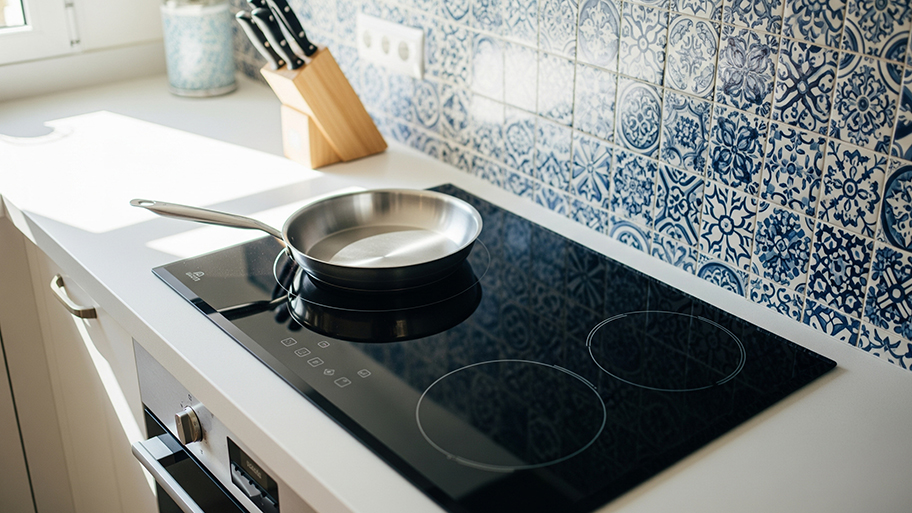
Broken glass stove tops are not only unsightly; they can also be dangerous. Use this guide to learn how much glass stove top replacements cost based on factors like size and type.
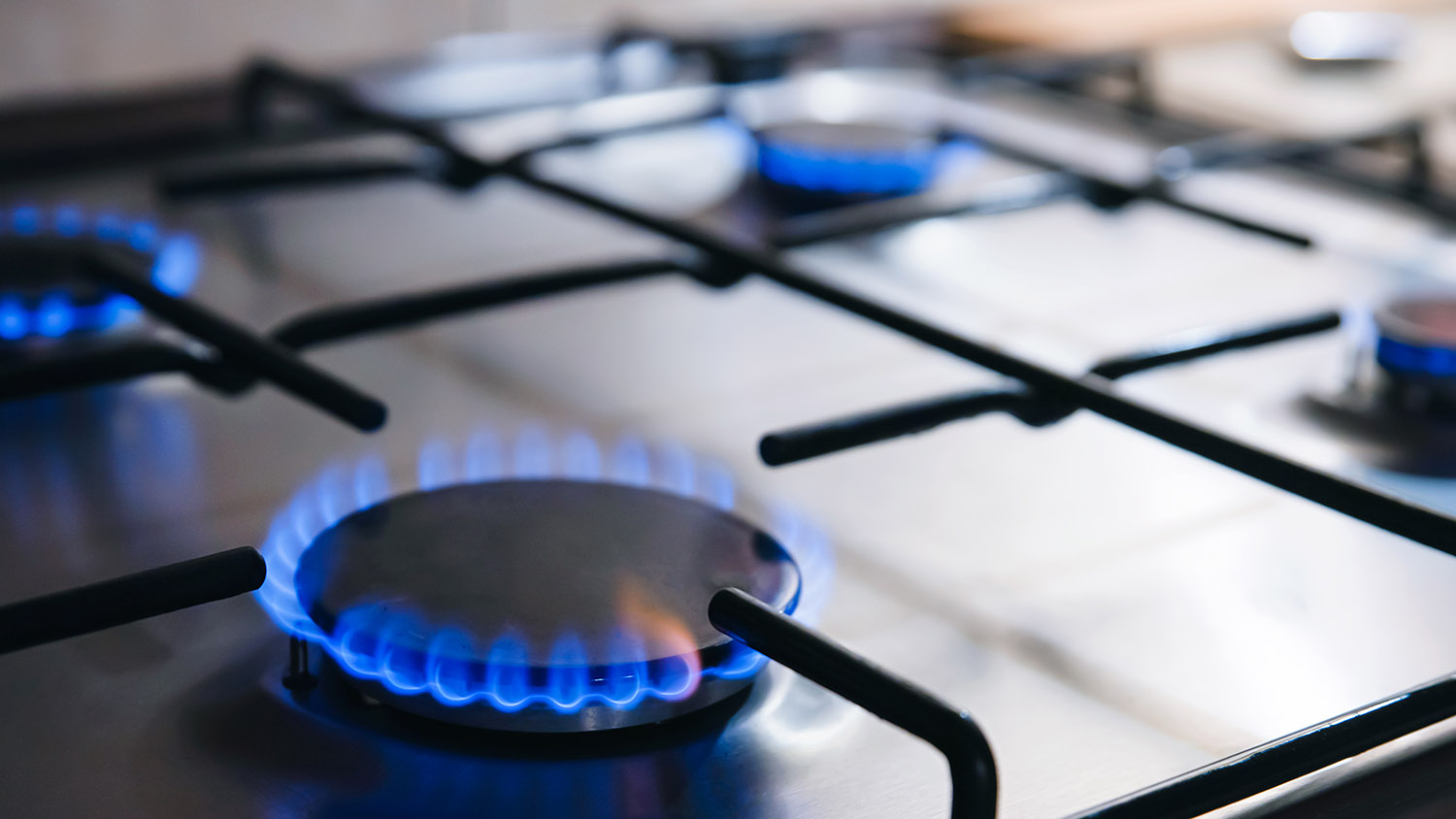
Get a clear estimate for stove repair costs. Learn what impacts pricing, compare repair vs. replacement, and find tips to save on your next stove repair.

Discover why your pellet stove is not igniting and learn effective troubleshooting tips to fix the issue. Keep your home warm with our expert advice!

Washing machine not spinning? Don’t panic—just because it appears to be broken doesn’t mean you can’t get your washer running again. Read on to learn how.

This article outlines the top reasons why your electric cooktop may not be working and the most straightforward solutions to each problem.